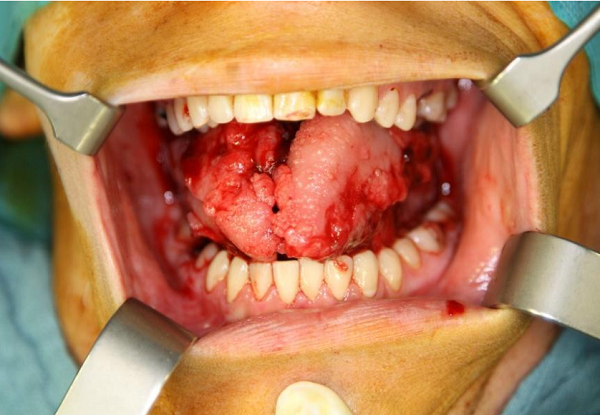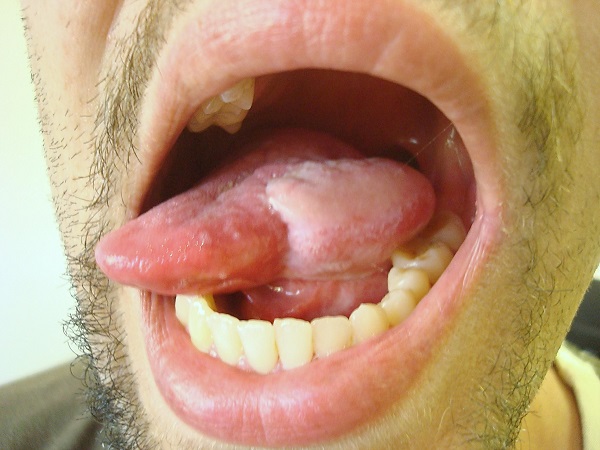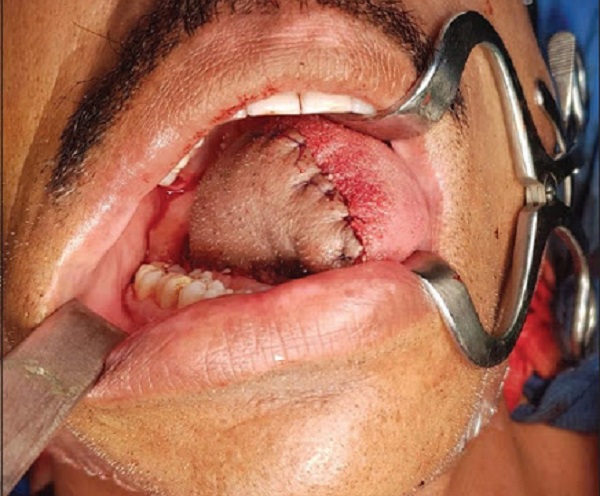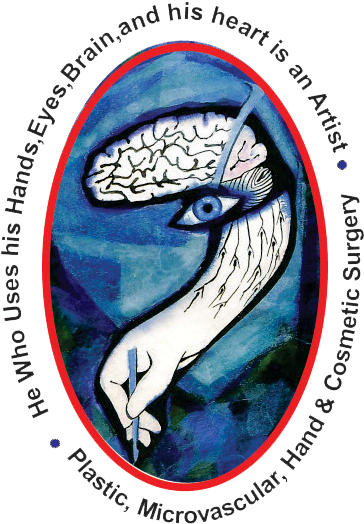Tongue Reconstruction
Tongue reconstruction involves reproducing the complex anatomy, function, bulk, texture, mobility, and sensation. With microsurgical advancement, many options are available for tongue reconstruction.

Tongue Surgery
When a cancer involves part of the tongue, glossectomy can be performed to remove either a part or all of the entire tongue, depending on how much of the tongue is affected. A partial glossectomy is when part of the tongue is removed, either a small piece or even half of the tongue. A total glossectomy is when the entire tongue is removed.
Preoperative Information
Before surgery, the patient meets with their team of health professionals, including the surgeon, oncologist (in charge of chemotherapy, if needed), radiation oncologist (in charge of radiation therapy, if needed), and speech pathologist/speech therapist. Together, a plan is made so that everyone is clear about the patient’s goals and the treatment and care.
There are risks to any surgery; the specific risks will be discussed by your doctors with you.
Post-operative Info
Directly after surgery, a patient is usually monitored at least 24 hours in the Intensive Care Unit, with nurses checking up on them every hour. When ready, the patient will be transferred to a Step-Down care unit. There, a patient can rest and nurses will check on them every 2–4 hours. Patients are usually kept in the hospital for five to 10 days and can go home with family assistance and a nurse that checks in a few days a week.
The tongue muscle is an important part of speaking and the swallowing mechanism. After surgery, the speech therapist will work with patients on tongue exercises to help a patient learn different and new ways to speak and swallow. This will either happen while the patient is in the hospital or clinic. It probably will be difficult at first. Nutrition after surgery will be either through a feeding tube inserted through the nose that goes into the stomach, or through a tube that is inserted through the skin directly into the stomach — called a gastrostomy tube, or G-tube. Some patients keep a tube feeding system when they go home because they are not yet ready or able to take nutrition through their mouth. It is very important to have both good nutrition and hydration. In general, patients will be trialed on liquids five days after surgery, unless they have had radiation treatment, in which it will be done for 10 days post-surgery.
If the mouth is expected to become swollen after surgery, a tracheostomy is performed at the same time as the tongue surgery.




